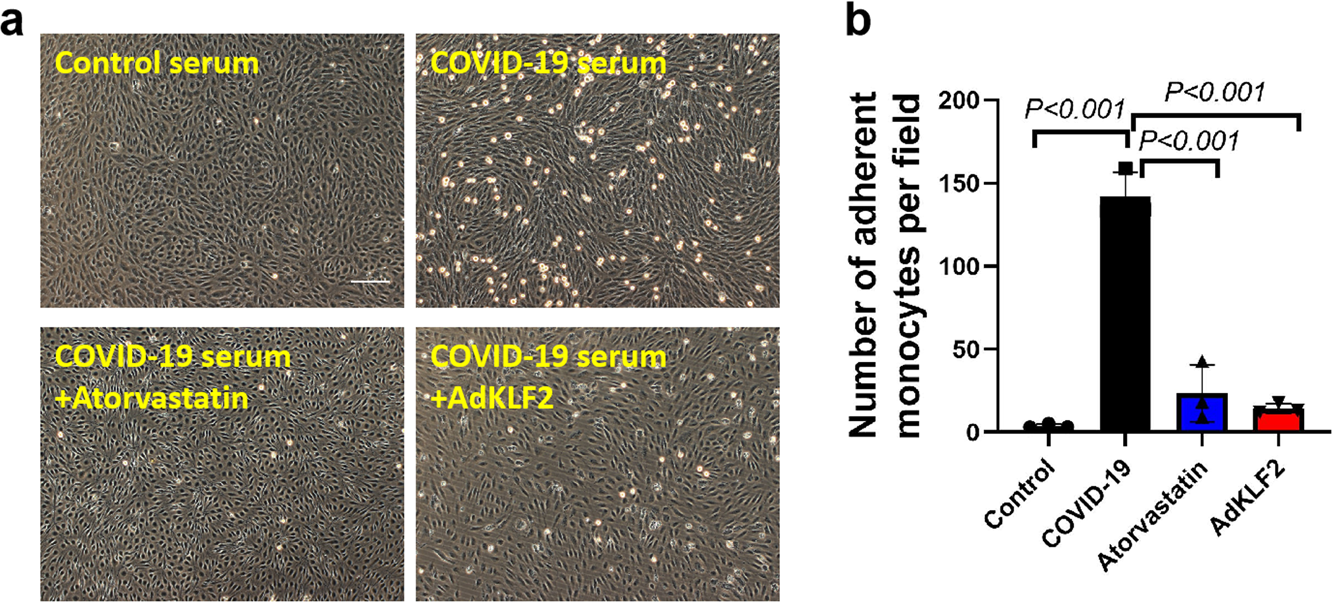Interesting paper coming out of China
The zinc finger transcription factor, KLF2, protects against COVID-19 associated endothelial dysfunction
https://www.nature.com/articles/s41392-021-00690-5
In short, there is a gene called Kruppel-like factor 2 (KLF2), which is vital for maintaining vascular homeostasis. Its expression was found to be reduced in Covid-19 infected individuals, and monocyte adhesion to the endothelial walls is increased. They show that by up-regulating this gene, the monocyte adhesion is decreased.
I am mostly interested in the ways that they found to up-regulate the gene in cultured endothelial cells. Here is a visual of the results:

First, there is the pharmacological route. They found that Atorvastatin can up-regulate this gene. They suggest some other compounds that can have the same effect.
Now for the more adventurous route, we have gene therapy. They used adenovirus expressing Human KLF2, and also obtained same results. How close are we to have this available though? We barely have any large scale trials. Is it because there is little incentive from pharma companies?
I understand these can be more dangerous than pharmacological alternatives, but that is why trials exist.
For those more interested in gene therapy with KLF2 upregulation, there are more studies:
* Pulmonary hypertension: https://www.nature.com/articles/s41467-020-14966-x
* Atherosclerosis: https://www.nature.com/articles/s41598-018-20885-1
The zinc finger transcription factor, KLF2, protects against COVID-19 associated endothelial dysfunction
https://www.nature.com/articles/s41392-021-00690-5
In short, there is a gene called Kruppel-like factor 2 (KLF2), which is vital for maintaining vascular homeostasis. Its expression was found to be reduced in Covid-19 infected individuals, and monocyte adhesion to the endothelial walls is increased. They show that by up-regulating this gene, the monocyte adhesion is decreased.
I am mostly interested in the ways that they found to up-regulate the gene in cultured endothelial cells. Here is a visual of the results:

First, there is the pharmacological route. They found that Atorvastatin can up-regulate this gene. They suggest some other compounds that can have the same effect.
Now for the more adventurous route, we have gene therapy. They used adenovirus expressing Human KLF2, and also obtained same results. How close are we to have this available though? We barely have any large scale trials. Is it because there is little incentive from pharma companies?
I understand these can be more dangerous than pharmacological alternatives, but that is why trials exist.
For those more interested in gene therapy with KLF2 upregulation, there are more studies:
* Pulmonary hypertension: https://www.nature.com/articles/s41467-020-14966-x
* Atherosclerosis: https://www.nature.com/articles/s41598-018-20885-1
